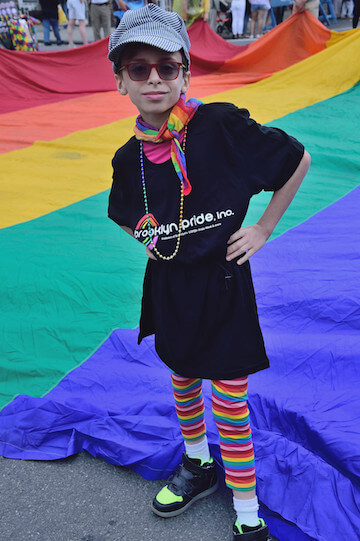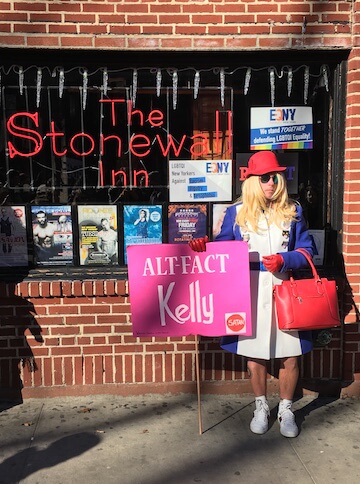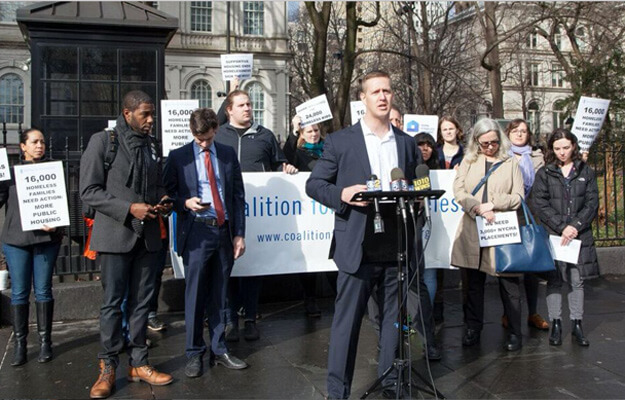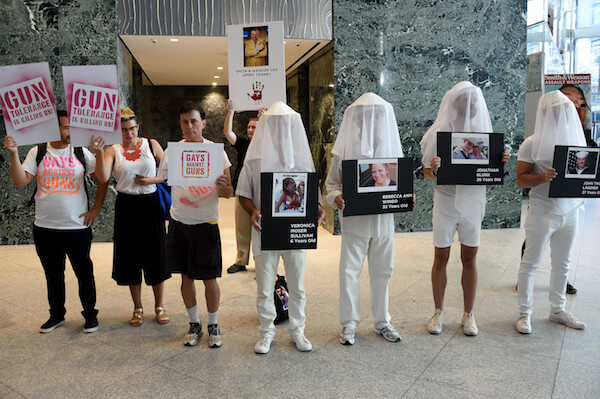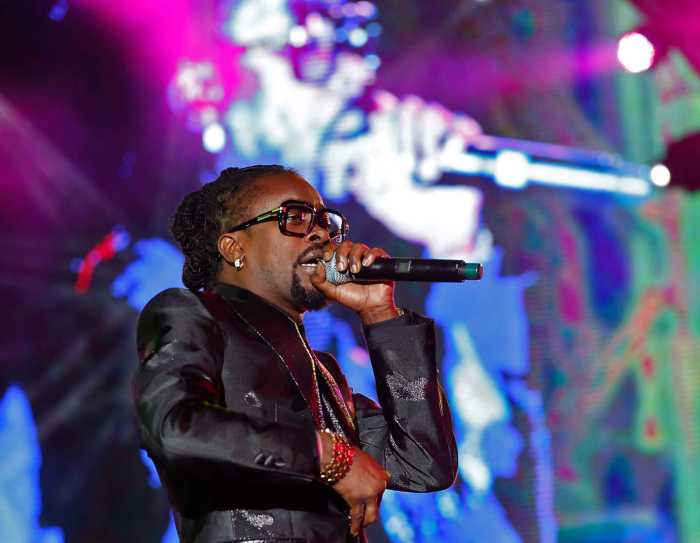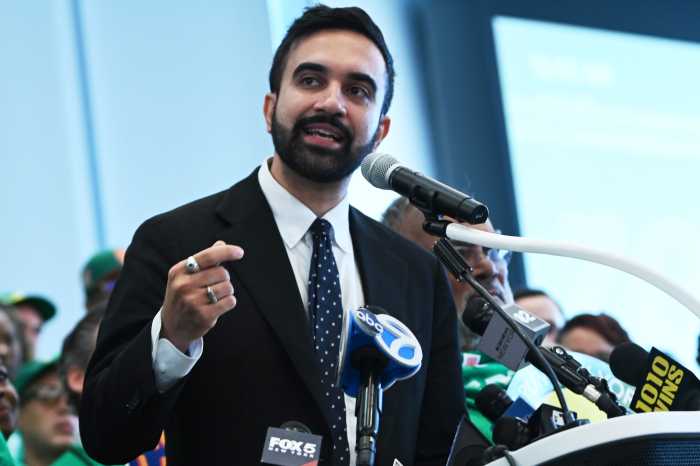Reshma Sujauni, a former deputy public advocate. | GAY CITY NEWS
Early in a debate among four candidates for the Democratic nomination for city public advocate, the contenders had to concede that the office has little power beyond its voice.
“As a public advocate, you’re unlikely to pass legislation and you have no money,” said Reshma Saujani during the April 17 event that was held at Pace University near City Hall.
The public advocate is on the board of trustees that oversees the New York City Employees’ Retirement System, so the city unions care about the officeholder. She or he also sits on other boards and appoints members to some governing bodies, such as the City Planning Commission, so other groups have an interest in who occupies the office as well.
But with a current annual budget of roughly $2 million and a staff of about 40, the office has little power. Meant to be an ombudsman for New Yorkers, the public advocate cannot subpoena records from city agencies. The position can propose legislation to the City Council, but legislation there advances only with the approval of the speaker, who may not wish to make the public advocate look good to voters.
City Councilwoman Letitia James. | GAY CITY NEWS
If the public advocate can be said to have any power, it lies in the bully pulpit the office provides, but in a city filled with press-hungry voices, getting heard can be a struggle. The candidates said they would maximize the use of that bully pulpit.
“A reporter recently said that the job of the public advocate was to annoy the hell out of the mayor,” said Letitia James, a City Council member who represents a Brooklyn district. “I’ve done that for the past 12 years.”
Cathy Guerriero, a “mom, an educator, a small business owner, and a planner,” said she would be the city’s “premier bully” once elected to the office.
All the candidates agreed that the City Charter should be altered to increase the public advocate’s power, including subpoena power, but that is unlikely to happen. Other than the public advocate, no elected official –– and no mayor in particular –– would approve a plan to create a permanent thorn in City Hall’s side.
Generally, the candidates agreed on issues that are important to the queer community.
Educator Cathy Guerriero. | GAY CITY NEWS
They said that the city health department policy of requiring transgender people to present evidence of surgery and hormone treatment to get an accurate birth certificate was wrong. They supported a plan to make an annual $12 million appropriation for homeless and runaway youth a permanent part of the city budget and to add $1.5 million to that amount every year until homelessness in that population was eradicated.
James and Guerriero opposed the Bloomberg administration’s policy of barring religious services in city schools while Saujani and State Senator Daniel Squadron, whose district includes neighborhoods in Brooklyn and Lower Manhattan, said they thought City Hall was right.
Beyond that disagreement, where the four candidates distinguished themselves were on the records they had built on LGBT issues and on their plans for the public advocate’s office.
State Senator Daniel Squadron. | GAY CITY NEWS
“This one is personal,” said Squadron about the evening’s significance for him. Squadron is a longtime supporter of queer community causes. He said his 2011 vote for same-sex marriage was the “most powerful, most meaningful vote” he has cast.
“It’s personal because I sponsor GENDA,” Squadron said, referring to the Gender Expression Non-Discrimination Act, state legislation that would add gender identity and expression to the New York’s anti-discrimination law.
James is also a longtime community ally who has worked with and funded small non-profit groups.
“I am an ally,” she said “I am a supporter. I’ve been there, I’ve done it, I am your next public advocate.”
Saujani and Guerriero, who lack that same sort of history with the LGBT community, tended to discuss their plans for the office.
Saujani was a deputy public advocate under Bill de Blasio, the current public advocate and a candidate for mayor. She pointed to her experience there and to a non-profit she founded, Girls Who Code, which aims to improve teenagers’ prospects for careers in science and technology, as examples of the public-private projects that the public advocate could promote.
“I think to be a successful public advocate, you have to be innovative,” she said.
Guerriero would create the Office of the Public Advocate Think Tank to recruit volunteer academics and other experts to assist the city and the office. She was the only panel member who was not above taking a poke or two at the other candidates.
“If I believed half of what I heard… I’d believe you were going to be saving planet earth,” Guerriero said after the other three finished explaining their vision for the office.
The debate was sponsored by the Gay & Lesbian Independent Democrats, the Jim Owles Liberal Democratic Club, the Lambda Independent Democrats of Brooklyn, the Lesbian & Gay Democratic Club of Queens, and the Stonewall Democrats of New York City. Gay City News was also a sponsor and the newspaper’s editor, Paul Schindler, moderated the debate.





